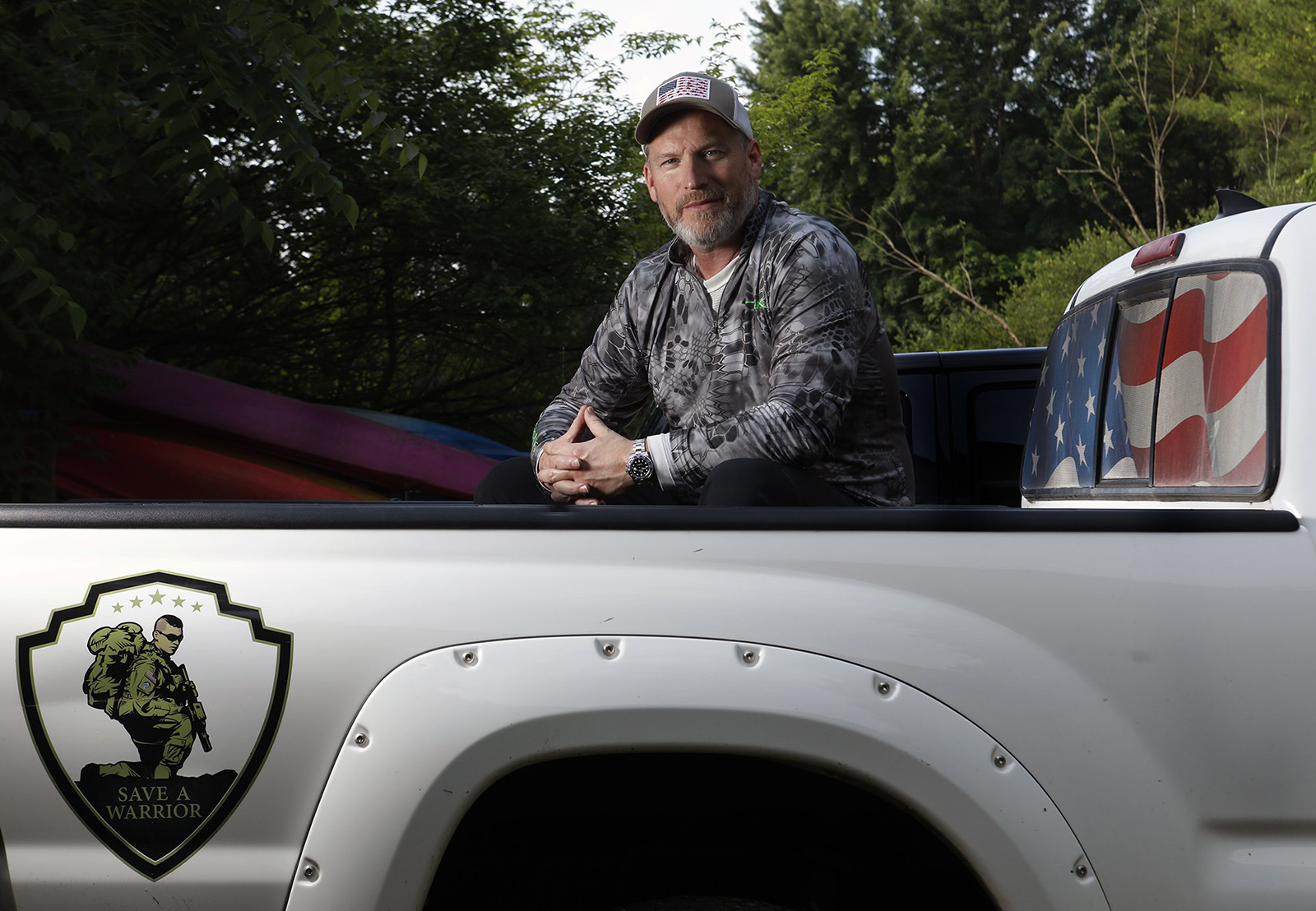Jake Clark is founder of Save A Warrior, a program that works with veterans who suffer from PTS. He was at the Westerville complex June 29 , 2020.This for Everyday Heroes. Eric Albrecht | Columbus Dispatch
Jake Clark
Jake Clark’s life has been anything but ordinary.
In 1983, at just 17 years old, he enlisted in the U.S. Army and spent most of his service in Central America. He was honorably discharged in 1988, then spent two years with the U.S Secret Service during the Regan administration.
Clark then moved out west to his dream location of Southern California, where he worked as a police officer for the Los Angeles Police Department. He served with the LAPD from 1990 to 1995, a period that included the riots following the beating of Rodney King.
While an officer, he went to night school to become a detective, received his degree in business and became an FBI agent for two years.
At 32 years old, Clark had achieved every goal he’d set out to accomplish. But even with all his success, he still felt empty.
“I just knew that my life was just spiraling,” Clark said. “I was achieving everything I wanted in life, except for any sense of personal fulfillment and satisfaction.”
As a child, Clark, now 54, grew up with a mentally ill mother and a gambling-addicted father. He has seen genocidal atrocities and violence during his time in the military and law enforcement. Haunted by this past, he knew he needed—and so sought out—help.
“I realized people like me, (who) grew up with a lot of developmental trauma, we can be really attracted to the glitzy symbolic power positions that are ultimately just eating us alive,” he said.
After treatment and recovery, Clark knew that he wanted to help people like himself: those who suffered from post-traumatic stress developing from early childhood events to adult life after serving in the military or as a first responder.
With that goal, Clark founded the Save A Warrior program in 2012. It’s an intensive retreat program designed to help reduce the staggering suicide rate among veterans, active-duty military and first responders by focusing on healing from post-traumatic stress.
The program currently operates in Newark, Ohio, where Clark lives, and in Malibu, California.
A cohort of 10 to 12 “warriors” spend a week engaging in ceremony, ritual, storytelling and other experiences that help locate, identify and resolve the source of psychic pain, Clark says.
“They come in here saying, ‘This is what’s wrong with me.’ We know that’s never the case. It’s always the thing under the thing, and we are able to get to that usually within a day or two,” Clark said.
Growing up in a home with an abusive father, Larry Turner—an Army veteran and former Columbus police officer—said he spent most of his life thinking he was “defective, helpless and alone.” As a result, he isolated and withdrew himself—a problem he says he could never fix.
“I mean, I grew up and then I joined the military just to escape my house,” Turner said.
Turner said that when Save A Warrior found him, he had recently updated his will and started giving away his personal effects. But after some persuading, he agreed to give the program a try.
He recalled Clark trying to convince him that he may have complex post-traumatic stress and wanting to help him. Turner said the week he spent with Clark changed his life.
“I had never felt love, joy, peace or happiness before in my life, and thanks to their program, I now fully enjoy life,” Turner said.
Clark said since the start of his program, he’s seen transformation in the lives of many of those who’ve come through his program.
“I’ve seen people reconcile with their families. … I’ve seen people go on to complete graduate degrees and social work. … I’ve seen people get married and have children,” Clark said. “I’ve witnessed miracles these last eight years.”
